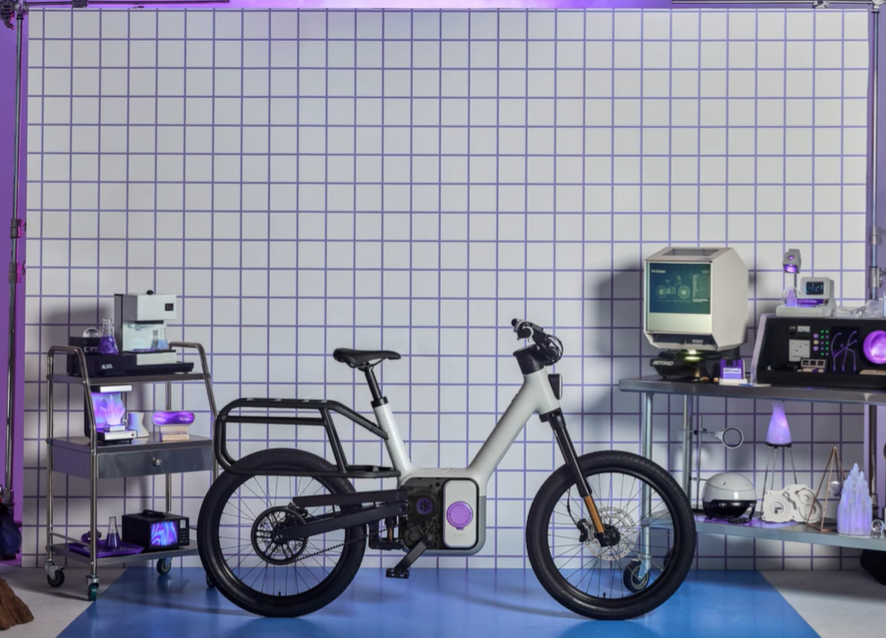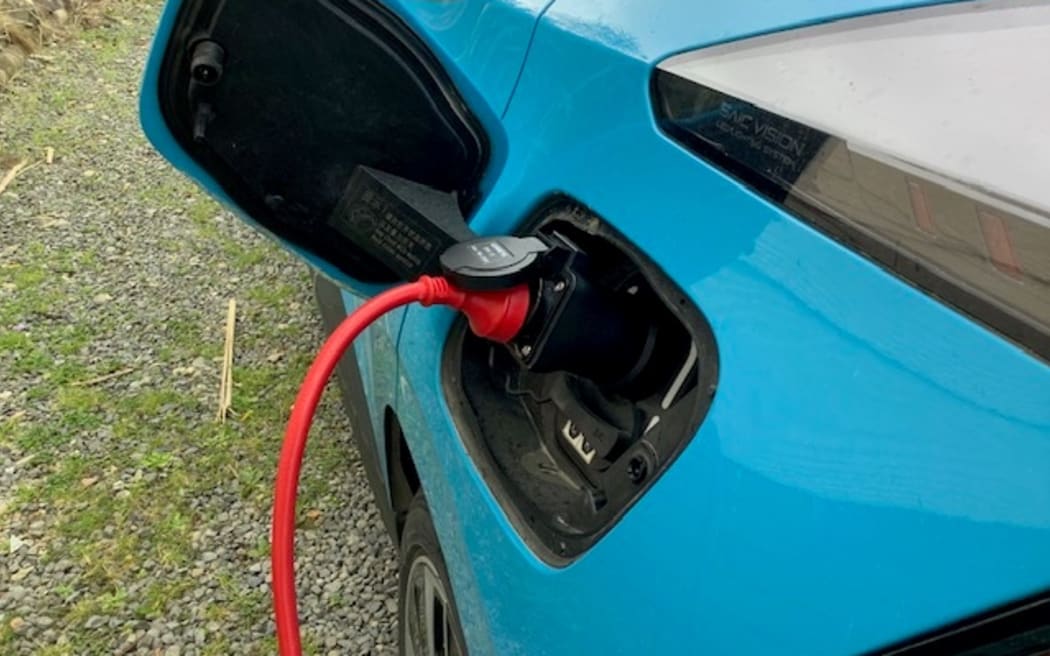The case for energy loans: read our latest explainer



Electric homes and EVs show their worth once again by providing resilience during the recent storms; savvy landlords are installing solar and upgrading gas to electricity to help tenants - and themselves; Basis founder Danny Purcell shares some impressive numbers from his smart panel experimentation; Uber goes from green to electric as it pushes for a zero-emissions mobility platform; Air New Zealand's electric plane and airports investing in solar; and 'transcendent mobility' from Rivian's e-bike spinoff.

‘A good party trick’
Every time there’s a major weather event, we hear the stories. People with solar and batteries who didn’t notice the power went off; community hubs with solar and batteries that can keep people fed and phones charged up; or EV owners that put their batteries to use in a blackout.

RNZ talked to Rob McCaw, who used his solar-charged EV (and plenty of extension cords) to ensure he had a hot breakfast and cup of coffee yesterday when the power went out in Picton.
As he said: "I've got an extension lead from the car through the window, and a couple of extension leads running across the lounge floor," he said. "The first and most important one was getting the jug on and then the toaster this morning. The internet was next in line.
"You just have to have an adapter and then the car has a setting and you can choose how low you let the battery go before it stops taking the power out so you don't get stranded. You've got to be a little bit sensible with these things, but it's a good party trick."
He told RNZ that he needed the extension cords because “New Zealand doesn't yet have the legislation to allow the car to plug directly into the normal home circuits.” We don’t want cars to be plugged into circuits, we want cars to be plugged into smart bidirectional chargers that can run our homes and feed back to the grid. That is possible now because there are no regulatory barriers in the way. We just need the manufacturers to unlock the capability in the cars.
Going electric is about creating real resilience when these events occur and the science shows they’re becoming more common (although as Bernard Hickey pointed out yesterday, there was no mention of climate in the coverage of the storms).
Ten out of tenant
Another good party trick is landlords putting solar on their rentals - and electrifying their properties.
Around one third of New Zealanders live in rentals, and they are often unable to benefit from the savings of solar and electrification as the upgrades are in the landlord’s hands. But rather than have the tenants send their money to a big electricity landlord that is likely to keep putting up the rent, The Post talked to Nelson landlord Harry Pearson, who has wisely decided to get the tenants at two properties to pay him so that he can pay off the solar. This means he will have an additional asset on his property and his tenants will have lower bills.
To cover the installation cost of solar panels, Pearson says he took out loans of about $20,000. Then, when the panels were installed, he increased his tenants’ rent - with their agreement. He says the tenants benefit with a reduced power bill, despite the rent increase, and ultimately come out better off.
“So that helps me pay the cost of the installation and they still should save at least half of the estimated savings, and potentially more if they wanted to be frugal about how they used power and changed their habits around power usage.”
The Post also talked to Timaru property investor Kerry Beveridge, who is gradually upgrading every one of his 55 tenancies from gas to electricity.
Beveridge said he’s never had a tenant ask him to switch gas for electric, but watching the supply and price issues grow, it became a priority.
“It’s just that I think it’s going to be better long term to use electricity for an energy source rather than gas,” he said.
We concur. And when the Gas Industry Company and Master Plumbers CEO continue to stretch the truth, it's good to see that smart property owners aren't taking the bait.
First name Basis
Speaking of more efficient electric homes, we’ve been following the progress of Basis and its smart panel closely and reckon it has massive potential to help with the energy transition. Like any good innovator, co-founder Danny Purcell has used himself as a guinea pig and found the product worked a treat when he tried it out at home. He’s shared the impressive results of his trial.
As he wrote:
💸 My electricity costs ($) will reduce $1,366 a year (37% reduction)
📉 My electricity use (kWh) has reduced 21%
🎉 Payback period will be 3.2 years. (compared to a 9.7 year estimate for Solar)
💧 62% of electricity use was from my Hot Water Cylinder
See the full rundown here.
From green to electric
As the army of white Priuses come to the end of their useful lives, we’ve been noticing a lot more electric taxis on the roads and we also noticed that Uber has just changed the name of its sustainable option from Uber Green to Uber Electric on the app.

Uber is gunning for a zero emissions mobility platform by 2040, and is offering drivers in the US $4000 to upgrade to electric. Like Rewiring, the main argument is that it's good for business. And, as changes to the road user charges scheme come in next year that will make EVs more economical, we reckon those numbers will increase.
We also shouldn’t underestimate the role taxi drivers could play for wider adoption simply by extolling the virtues of EVs to those who may not have even been in one before.
Car sharing scheme Mevo is also changing its prices, with EV hourly/daily prices dropping and ICE charges increasing. It’s great to see a car share company recognise the overall costs, although it did also increase the fee from $0.50 to $0.75/excess km over 200km for EVs, which now matches ICE.
No word on whether the Citroen Formula-E car will be available.
Flying visit
Aviation is one of the toughest sectors to electrify, but we’re starting to see some momentum in this space - just like we've seen in other difficult sectors like buses, trucks and construction equipment - and Air New Zealand finally took hold of its first electric plane recently.
“This first flight marks the powerful intersection of pragmatic design and operational innovation,” said Chris Caputo, Beta Technologies director of flight operations.“We built the Alia CX300 on a foundation of simplicity to ensure a fast, safe, and efficient path to commercial service.”
He said with the collaboration, Air New Zealand was creating an operational blueprint for operators worldwide who were serious about unlocking low-cost, sustainable connectivity for regional communities.
While big electric planes are still a while off, we’re always advocates for doing what you can do now and there are a number of airports that are embracing solar, looking at EV charging options and electrifying some smaller machines.
Auckland Airport lays claim to the largest rooftop solar system in New Zealand on its Mānawa Bay outlet centre, Christchurch Airport is developing a massive solar farm project consisting of around 300,000 panels, and Hamilton Airport and New Plymouth Airport are also going down the solar farm route.
Hawke's Bay just kicked off a $450k project to put over 600 panels on its roof.
‘Transcendent mobility’
We love a bit of leg power at Rewiring and Rivian’s e-bike spinoff Also caught our attention.
The ebike promises ‘transcendent mobility’ (which makes it sound like there will be levitation involved), the seat can be swapped out for different versions, it has regenerative braking and it charges via USB-c.
There is also a quad cargo bike designed for bigger loads.
We’re fans of the name because when it comes to transport, Rewiring’s approach is that it’s about yes AND … we need all of the small electric mobility machines like this, but we also need electric utes and cars for the trips that they won't replace.
If you're a bike fan looking for a costume for Halloween, this could be a good option.


Rewiring Aotearoa is in favour of universal Road User Charges as we believe it will address an artificial market distortion for vehicles that is not in New Zealand’s economic, fuel security, or resilience interests. Here's what we told the Select Committee.
Read moreDownload
The story of Uruguay's renewable push and why it's relevant here; EVs reach a tipping point in the EU, but they're growing in developing nations, too; Tauranga Crossing and Endless Energy go vertical with a new solar install; new research shows panels keep on trucking far past their warranty periods; and if you need a hand getting out on the waves, how about getting your own electric towing machine.
Read moreDownload
Our Political Power series aims to show that going electric is good for everyone, no matter where you sit on the political sprectrum. Whether you're looking to lower costs, reduce emissions or increase resilience, it increasingly makes sense at an individual, community and country level and ACT's Todd Stephenson, who bought an electric Jeep around one year ago and built his new home in Queenstown to run on electrons, is a good example of that.
Read moreDownload